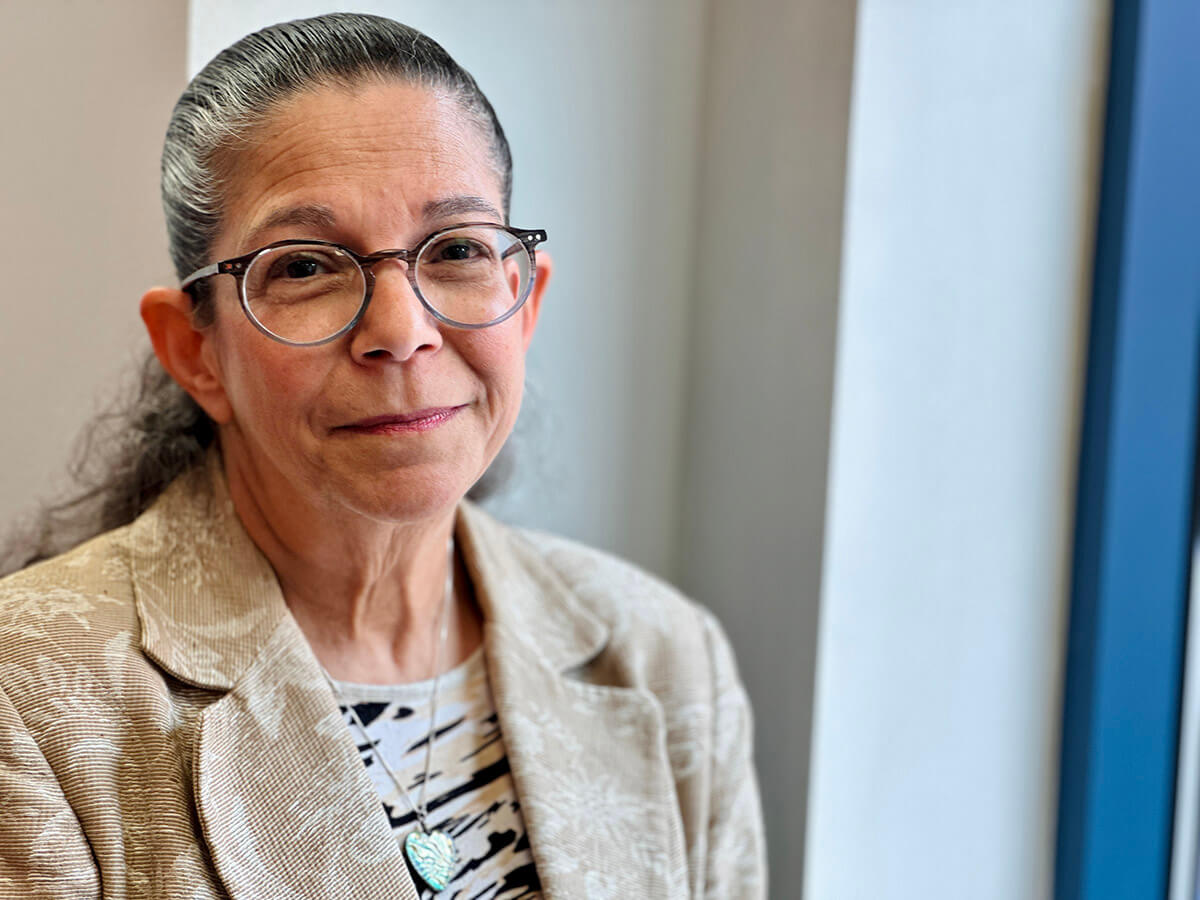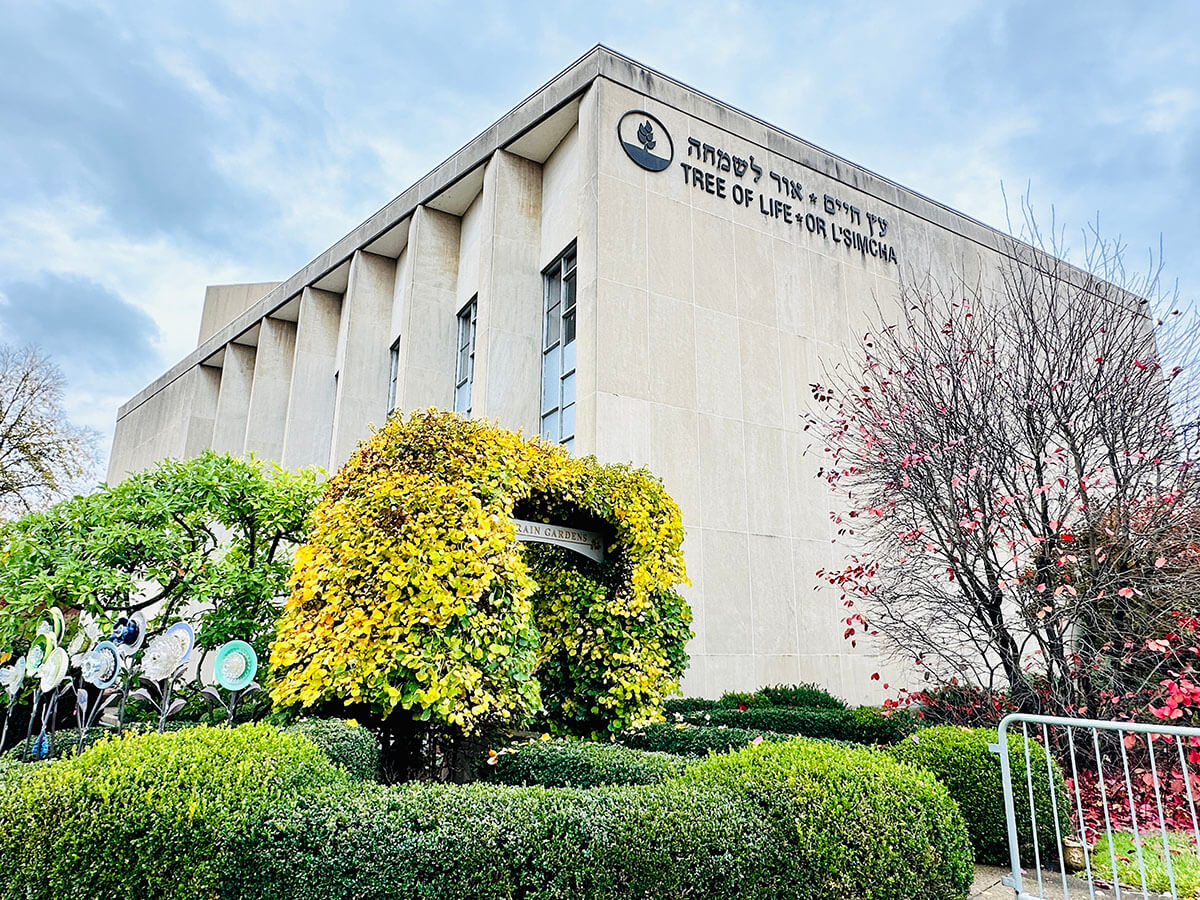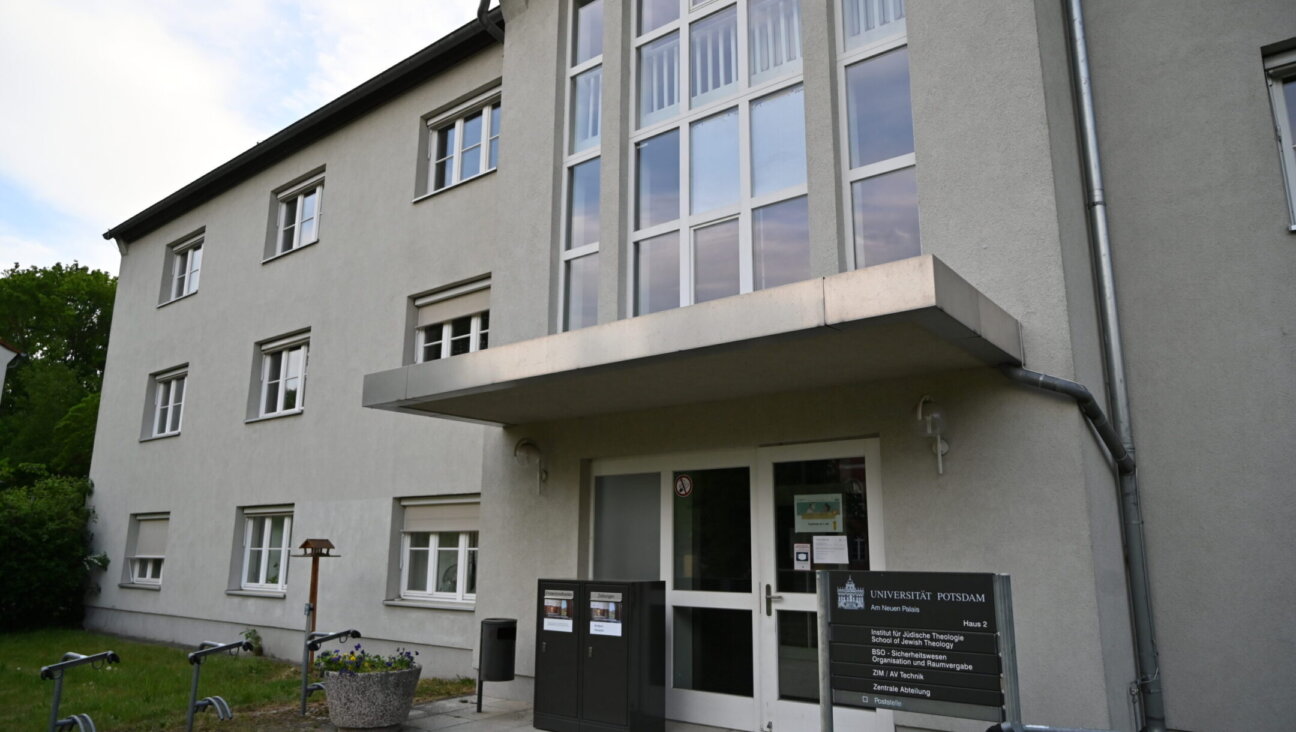She survived the worst antisemitic attack in US history. Finally, she’s ready to talk about it
Audrey Glickman reveals the lessons she’s taking with her after the verdict in the trial of the Tree of Life shooter

Audrey Glickman survived the shooting at the Tree of Life synagogue in Pittsburgh. Photo by Benyamin Cohen
Audrey Glickman wants to talk.
In many ways, she has felt silenced since 9:50 a.m. on Oct. 27, 2018.
On that fateful Shabbat morning, Glickman, a longtime member of the Tree of Life synagogue in Pittsburgh, was leading services in a small chapel when she heard the unmistakable rat-a-tat of gunfire.
She grabbed congregant Joe Charny, then 90, and raced up the stairs and into a small room filled with bags of clothes. Together, huddled and scared, they hid under their prayer shawls.
Glickman has spoken out — just a bit — in the years since she survived the deadliest antisemitic attack in American history. But as the trial of the shooter loomed, she and the others were advised to save their testimony for the courtroom. The last thing anyone wanted was for the defense attorneys to claim that witnesses were impacting the jurors outside of the legal proceeding.
And so Glickman and her fellow survivors remained, dutifully if not entirely enthusiastically, quiet. Until now.
On Wednesday, a federal jury sentenced gunman Robert Bowers to death for murdering 11 Jews at worship that Saturday, nearly five years ago.
“I didn’t have a way to convey what I was feeling,” Glickman said. “And I guess it feels wonderful now to be able to talk about it.”
‘Justice has been served’
Glickman, 66 and a diminutive 4-foot-10, settled into a chair in a sparse office on the second floor of the Jewish Community Center of Greater Pittsburgh Wednesday afternoon. Her long auburn hair, speckled with gray, was pulled back away from her face, revealing a hint of a smile.
“I was raised to understand that every generation has someone who will hate you,” she said. “We were taught to expect it.” The shooting at Tree of Life “didn’t come as a surprise.”
And while an antisemitic attack on a synagogue may now seem like it was always inevitable in the U.S., Glickman believes that people with hateful beliefs can always choose another path. “We all have baggage that we carry from our lives,” she said. “It doesn’t mean that it has to lead to something bad. Many of the surviving witnesses who testified talked about the childhoods of the people that we lost, and they were not wonderful, in all cases, either.
“We have what we’re dealt, and we don’t have to choose the way the shooter chose.”
Charny, a World War II vet and a devoted “morning minyanaire” at Tree of Life, was hoping to testify, Glickman said, but he died in January from complications of Alzheimer’s at age 95. Asked what her friend would have thought of Wednesday’s verdict, Glickman was quick with a response.
“Joe would say that justice has been served,” she said, “and we must continually bend towards justice.”
Moving forward

Glickman and the other survivors have spent the years since the shooting trying to piece together the chaotic moments of the massacre — to understand the true scope of the attack. The prosecutors filled in the gaps during the trial.
“As the evidence came forward,” Glickman said, “I realized that there was a bullet that went straight through the desk where I was standing, leading the service. And I had no idea.”
She said she views Bowers’ trial as a book. Even though it’s over, its lessons will stick with her. “We have this big tapestry,” she said, widening her arms. “Somebody shot holes in our tapestry. We can weave it back together. We’ll never be the same. But we have all these other people who said, ‘let’s contribute, and let’s help them weave that back together again.’”
She paused for a moment, and then added: “There are way more of us than there are of the bad guys.”
Glickman quit her job as a rabbi’s assistant at Congregation Beth Shalom in Squirrel Hill, the same neighborhood as Tree of Life, so she could be in court every day during the two-month trial. She’s not sure what’s next for her. Perhaps she will return to her first love, the theater, and produce shows at the JCC like she did in the 1990s.
What she does know is that come this Saturday, she will be praying, as she has just about every week, at Tree of Life services. (The congregation, for the time being, is renting space from another synagogue while Daniel Libeskind, the star architect who built the Jewish Museum of Berlin, reimagines the Tree of Life site.)
“This particular community was actually the best place such a thing could happen,” Glickman said. “Because the entire community came together around us. And following that, the entire world came around us. And now it’s five years on, and the strength is still there.”






















